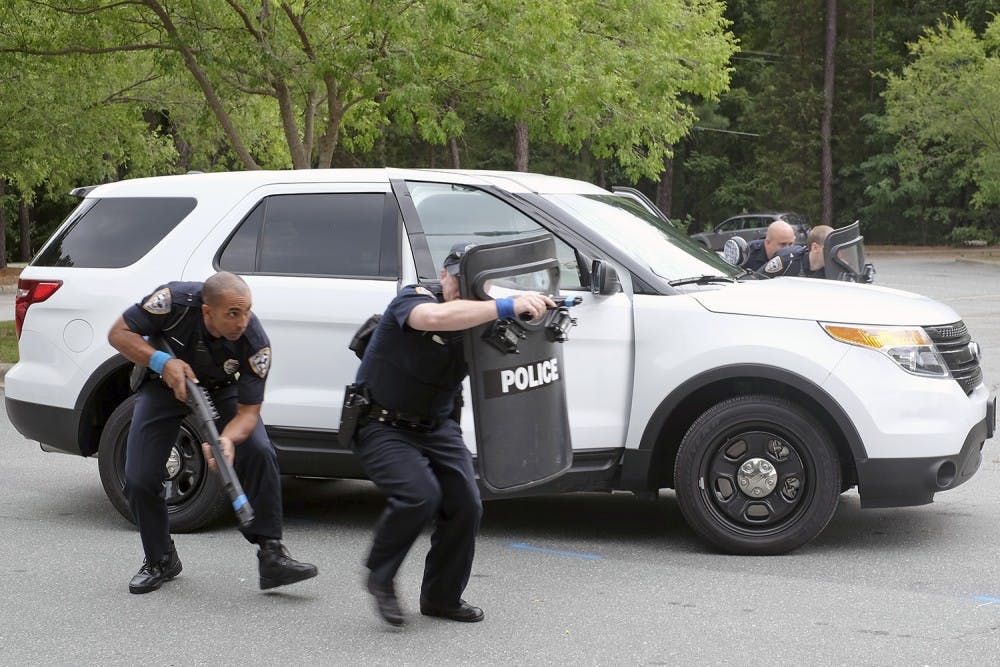DPS officers receive training from the state and campus-specific field training before they are allowed to patrol campus on their own.
“There’s a whole academy so to speak that all law enforcement officers in the state have to attend,” said DPS Chief Jeff McCracken. “You have to pass a state exam before you can be certified.”
Sgt. Cameron Gales, who oversees training for UNC officers, said state training teaches basic skills. After that, officers train on campus to learn more about the job as it relates to UNC.
“During the field training process, the recruits or rookie officers are hooked up and linked to their field training officer 12 hours a day for the days that they work,” he said. “So they’re joined at the hip.”
At the beginning of the 12-week process, Gales said the new officer observes how the field-training officer acts and then gradually takes on more responsibility.
“The last week of the 12 weeks the field training officer in charge will come to work in street clothes and ride with the training officer and the training officer operates as a solo unit for five days,” Gales said. “Which means the rookie officer is doing all of the driving, answering all of the calls.”
Once the officer is working at UNC, the state requires 24 hours of training each year and the department specifies an additional 24 hours. McCracken said this training includes diversity training and emergency response training — such as how to deal with an active shooter.
Gales said some examples of diversity training include how to better accommodate youths and citizens with mental illnesses such as autism.




